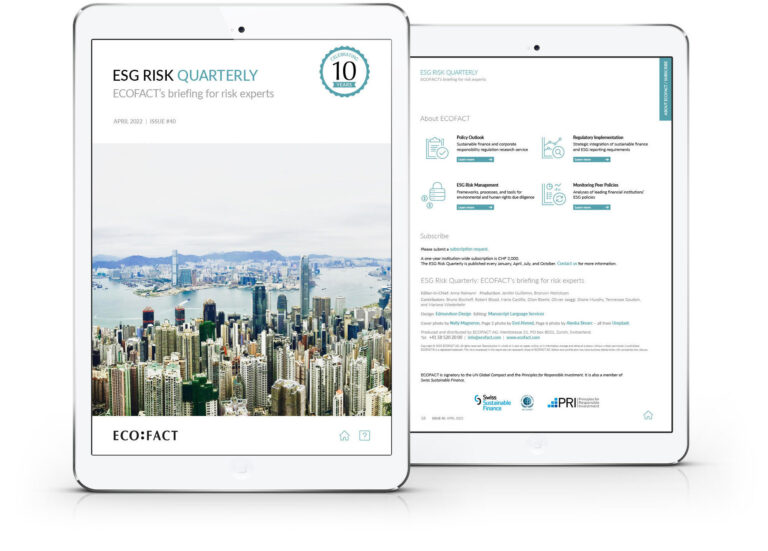To Contribute, or Not to Contribute, That Is the Question
One of the most intense discussions about E&S risks[1] concerns the question of whether and when financial institutions contribute to adverse impacts on people and the environment through their client relationships or investments. This question matters, because the answers will influence the expectations with regard to remedies.
The working group for the Dutch Banking Sector Agreement[2] is seeking answers to this question from the perspective of corporate lending and project finance. The working group recently shared the draft of a discussion paper that, among other objectives, aims to clarify when a bank’s actions or inactions may be regarded as making a substantial contribution to an adverse impact. They build on the following definition used by the OECD[3] [paraphrased and simplified]: An enterprise contributes to an adverse impact if its activities cause, facilitate or incentivize another entity to cause an adverse impact. Such a contribution should be substantial, and does not include minor or trivial contributions. The mere existence of a client relationship or the provision of services does not automatically signify a relationship of contribution.
The OECD also provides three factors to help determine whether an enterprise may be contributing to an adverse impact, but does not further explain its understanding of facilitating or incentivizing, two rather vague terms. The Dutch working group has now attempted to define them [paraphrased and simplified]:
- Incentivizing implies that a third party is motivated by a bank to take an action that leads to an impact (example: an advising bank urges a manufacturing company to cut costs, knowing that this may impair health and safety standards).
- Facilitating implies that a third party was already likely to take the action that has caused an impact, and that the bank’s actions or inaction have contributed to the enabling conditions required for the impact to occur (example: a bank provides a loan to a mining company that causes adverse impacts. The bank is aware of this, but fails to address the issue during the due diligence process. Financing combined with inaction may be seen as enabling conditions that allow impacts to occur).
Such definitions are important, as they help to clarify responsibilities and provide market actors with transparent and predictable expectations. The question is whether these definitions are sufficiently granular and precise. Furthermore, there are additional terms that require clarification, such as the notion of foreseeability, a term also used in the OECD guidelines. However, all standard-setters agree that insufficient due diligence processes make it more likely that a financial institution will be seen as contributing to adverse impacts on people and/or the environment.
 All posts
All posts Contact
Contact



